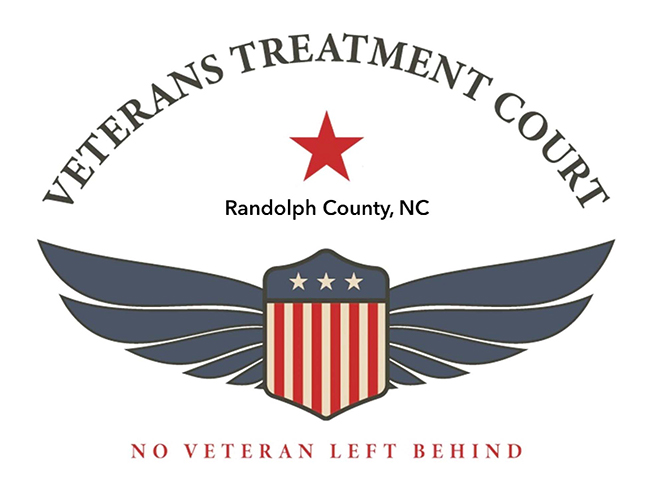Welcome!

Help is on the way for at-risk veterans
ASHEBORO — Randolph County is one of just four jurisdictions in the United States to receive federal funds for at-risk veterans. The Bureau of Justice program is called Veterans Treatment Court.
Sheriff Greg Seabolt asked the county commissioners on Nov. 6 to approve the grant of $851,663 to cover three years of the special court.
A collaboration among the District Attorney’s office, District Court judges, the Clerk of Court, the NC Division of Community Corrections, local defense attorneys, and mental and behavioral health providers will establish processes and procedures for the Veterans Treatment Court.
The commissioners unanimously approved Seabolt’s request.
According to Seabolt, Randolph County is home to more than 8,000 veterans. He said that the National Institute of Drug Abuse reports that 1 in 10 veterans in the US have been diagnosed with a substance user disorder.
“Impacted by critical issues like substance use, pain, suicide risk, trauma and homelessness, our veterans face serious hardships that, without intervention, can lead to chronic health conditions, incarceration and death,” Seabolt said.
To address those concerns, the Sheriff’s Office applied for funding to establish a local Veterans Treatment Court that will connect low-level offenses to treatment for substance use and mental health.
The federal funds are from the Bureau of Justice Assistance under the Veterans Treatment Court Discretionary Grant Program. The money will implement the District 19B Veterans Treatment Court, which will be a pre- and post-adjudication court that will serve approximately 80 veterans per year.
The estimated length of the program participation will be a minimum of 16 months and a maximum of 24 months, or an average of 18 months for each participant.
Addressing the need for the special program in Randolph County, Seabolt said a recent count of current inmates at the county Detention Center revealed that 67 were veterans. Some are suffering mental health issues or PTSD, he said. The special court will connect those in the program with state and local treatment programs, help restore their lives and fit them back into society.
"I've seen it in law enforcement,” Seabolt said. “They get back home and they can't fit into where they used to be."
That leads some to substance abuse and even homelessness. Eventually, many are arrested on low-level offenses and wind up in jail.
"It's not a free program,” Seabolt said. “It's not going to be a program where someone who is charged with a kidnapping, rape or attempted murder is going to have the opportunity. They will be screened by our judge and veteran coordinator assigned to this, who will be Laura Pate.
"The veteran is going to be looked upon by various mentors that are assigned to look over and get him situated back to where he needs to be as a transitional person."
A committee with 18 members will oversee the Veterans Treatment Court, which will begin Dec. 1.
"This was a labor of love.,” Pate said. “It took about two years to write the grant. We were one of four nationwide to get this, and I think we can all agree our veterans need us, and we owe it to them to give them the best of life."
Judge Rob Wilkins, who will be a member of the oversight committee, said, "A lot of us on the team are veterans. We know how to talk to veterans and relate to them. Some of us in law enforcement or judiciary know how to talk to them in a way that they understand. This is not something I can order. This is something they have to choose. Like signing up for the military, they have to volunteer.
“For those who want the help, I believe we owe it to them to give them the help that's available."
Commissioner Hope Haywood said, "I commend the division and the work of the sheriff's department to go after this grant and get it."
Said Commissioner Kenny Kidd, "I think it's a great kick-off to the Veterans Day weekend."
